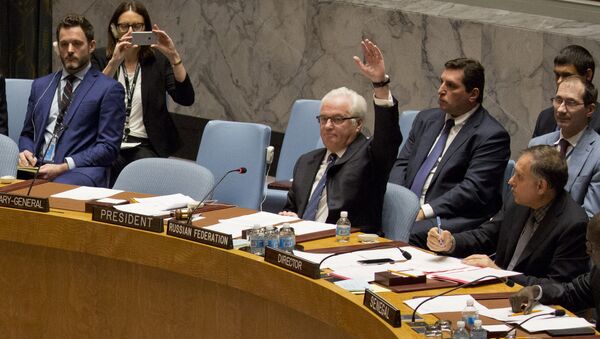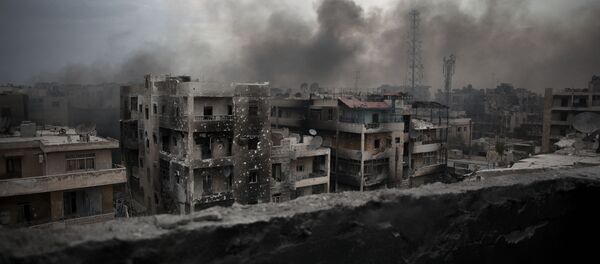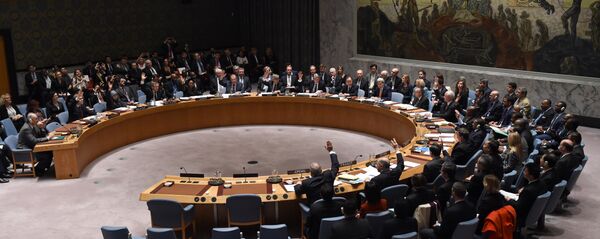On October 8, as expected, Russia vetoed a French-drafted Security Council resolution calling for an immediate halt to airstrikes over the city of Aleppo in northern Syria.
According to the Russian Foreign Ministry, Russia blocked the resolution, as it promised it would, because its text "grossly distorted the actual state of affairs" in Syria, and carried a "politicized, unbalanced and one-sided nature. The blame for the escalation of tensions in Syria was placed on the shoulders of the country's authorities."
But more importantly, the Foreign Ministry emphasized, by proposing a no-fly zone over Aleppo, the resolution "made a blatant attempt…to provide cover for Nusra Front terrorists and the militants amalgamated with them, in spite of UN member states' obligations to combat terrorist threats with the use of all available means."
Prior to the vote, Russian Ambassador to the UN Vitaly Churkin suggested that the French draft seemed to have been deliberately designed to provoke the Russian veto. This was the fifth time that Russia has used its veto right in connection to the conflict in Syria over the course of the brutal five-year conflict in that country.
But the drama in New York didn't end there. After blocking the French initiative, Russia introduced its own resolution, based on an idea by UN Special Envoy on Syria Staffan de Mistura to get Nusra Front terrorists withdraw from Aleppo altogether. This, de Mistura assumed, would bring down the level of violence in militant-controlled portions of the city and allow for the resumption of the Russian-US sponsored ceasefire of September 9.
Russia's resolution went to a vote, but received only four votes in favor among the Security Council's fifteen members. Of the permanent members of the Security Council, only Russia and China voted in favor of the Mistura-inspired proposal. Among the rotating members, Venezuela and Egypt also supported the Russian initiative, with Angola and Uruguay abstaining. The rest of the Security Council, including the US, France, the UK, Japan, Spain, Malaysia, New Zealand, Senegal, Ukraine voted against the measure.
On Saturday, both the Western and Russian resolutions on Aleppo failed spectacularly. But they served to confirm Moscow's growing suspicions that Washington and its allies would rather support outright terrorists (and a 'former' affiliate of al-Qaeda, no less) than accept the continued existence of Syria's secular government.





